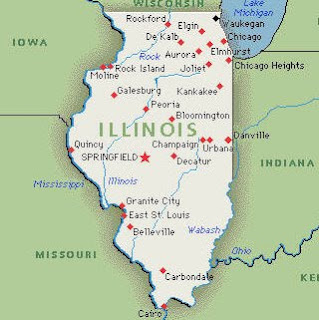An interesting press release just passed my inbox announcing the release by the of
a comprehensive review on all state and federal laws that impact people living with HIV or AIDS in the United States.
The Center for HIV Law and Policy today released the first comprehensive analysis of HIV-specific criminal laws and prosecutions in the United States. The publication, Ending and Defending Against HIV Criminalization: State and Federal Laws and Prosecutions, covers policies and cases in all fifty states, the military, federal prisons and U.S. territories.
“In the United States there are many shocking cases of persons being prosecuted for otherwise-legal conduct solely based on their HIV status,” said René Bennett-Carlson, CHLP’s Managing Attorney, and one of the authors of the manual, “This singling out of people with HIV for arrests and punishment without consideration of the responsibility of all parties in a sexual relationship, the actual risk of HIV transmission, and whether transmission even occurred is based on intolerable ignorance about HIV. These laws and prosecutions have no positive impact whatsoever on HIV infection rates or risk behavior.”
People are being imprisoned for decades, and in many cases have to register as sex offenders, as a consequence of exaggerated fears about HIV. Most of these cases involve consensual sex or conduct such as spitting and biting that has only a remote possibility of HIV exposure. For example, a number of states have laws that make it a felony for someone who has had a positive HIV test to spit on or touch another person with blood or saliva. “We hope that this resource will put a spotlight on this terrible injustice and make it easier for advocates to defend against these discriminatory prosecutions,” Bennett-Carlson added.
Some examples of recent prosecutions discussed in CHLP’s manual include:
· A man with HIV in Texas is serving thirty-five years for spitting at a police officer;
· A man with HIV in Iowa, who had an undetectable viral load, received a twenty-five year sentence after a one-time sexual encounter during which he used a condom; his sentence was suspended, but he had to register as a sex-offender and is not allowed unsupervised contact with his nieces, nephews and other young children;
· A woman with HIV in Georgia received an eight-year sentence for failing to disclose her HIV status, despite the trial testimony of two witnesses that her sexual partner was aware of her HIV positive status;
· A man with HIV in Michigan was charged under the state’s anti-terrorism statute with possession of a “biological weapon” after he allegedly bit his neighbor.
Ending and Defending Against HIV Criminalization: State and Federal Laws and Prosecutions is intended as a resource for lawyers and community advocates on the laws, cases, and trends that define HIV criminalization in the United States. Thirty-four states and two U.S. territories have HIV-specific criminal statutes and thirty-six states have reported proceedings in which HIV-positive people have been arrested and/or prosecuted for consensual sex, biting, and spitting. At least eighty such prosecutions have occurred in the last two years alone.
The catalog of state and federal laws and cases is the first volume of a multi-part manual that CHLP’s Positive Justice Project is developing for legal and community advocates. The goal of the Positive Justice Project is to bring an end to laws and policies that subject people with HIV to arrest and increased punishment on the basis of gross ignorance about the nature and transmission of HIV, without consideration of the actual risks of HIV exposure.
“We support the work of the Center for HIV Law and Policy’s Positive Justice Project. This manual is a tremendous achievement and provides a desperately needed resource for the HIV community,” said Vanessa Johnson, Executive Vice President of the National Association of People with AIDS (NAPWA). “NAPWA proposed the idea of an HIV criminalization manual to CHLP because of their reputation in this area, and because criminalization acts as a disincentive to testing. It discourages testing by imposing huge risks and penalties on a positive test result. Criminalization also is an unwarranted assault on the rights and dignity of people living with HIV.”
Catherine Hanssens, Executive Director of CHLP, added, “These laws make the statement that those who test positive for HIV are too toxic to have intimate relationships, that HIV is highly infectious, and that only those who get tested bear any responsibility for preventing the spread of sexually-transmitted diseases. These laws treat people with HIV as if they are packing an unlicensed, loaded gun – as if the very fact of HIV infection is proof of criminal intent.”
René Bennett-Carlson concluded, “Three decades into the HIV epidemic, it is time to bring this kind of ignorance and hysteria to an end.”
The manual can be accessed and downloaded at www.hivlawandpolicy.org/resources/view/564. Its completion was supported by grants for CHLP’s anti-criminalization work and Positive Justice Project from the MAC AIDS Fund and Broadway Cares/Equity Fights AIDS.
# # #
The Center for HIV Law and Policy is a national legal and policy resource and strategy that works to reduce the impact of HIV on vulnerable and marginalized communities and to secure the human rights of people affected by HIV. We increase the advocacy power of advocates, and community members, and advance policy initiatives that are grounded in and uphold social justice, science, and the public health. We do this by providing an accessible web-based resource bank; leadership and analysis on key policy issues; and direct back-up to advocates on initiatives through our interdisciplinary support networks of experts, activists, and high-quality resources.




























